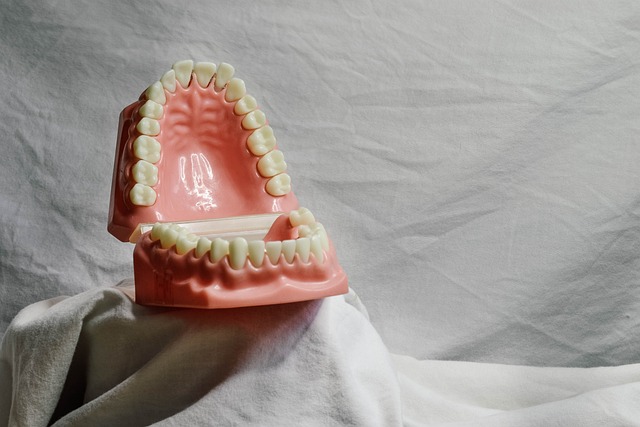Dental clinics require liability insurance to protect against risks, including equipment malfunctions, medical errors, and injuries. Malpractice insurance shields dentists from financial losses due to negligence causing patient harm, while property and business continuity coverage safeguard assets and operations. When choosing a provider, focus on specialists offering comprehensive protection with 24/7 support. Dentists must understand policy exclusions and limitations, as well as best practices for risk management like infection control and detailed record-keeping, to ensure adequate liability protection and maintain financial stability.
In the dynamic landscape of healthcare, dental clinics face unique challenges when it comes to liability insurance for dentists. This essential coverage protects practices against potential risks and claims arising from patient treatment. From slip-and-fall accidents to medical malpractice suits, understanding these risks is crucial for any dentist seeking to safeguard their practice. This article delves into the importance of professional liability insurance, key coverages to consider, choosing the right provider, common exclusions, and best practices for mitigating risk in dentistry.
- Understanding Dental Clinic Liability: Potential Risks and Claims
- The Importance of Professional Liability Insurance for Dentists
- Key Coverages to Include in Your Dental Practice Insurance Policy
- How to Choose the Right Liability Insurance Provider for Your Clinic
- Common Exclusions and Limitations in Dental Liability Insurance Policies
- Mitigating Risk: Best Practices for Reducing Liability Exposure in Dentistry
Understanding Dental Clinic Liability: Potential Risks and Claims

Dental clinics, despite their seemingly sterile environment, face a unique set of risks and potential liabilities. As healthcare providers, dentists are responsible for ensuring patient safety and well-being during every visit. This includes managing various risks, from equipment malfunctions to medical errors and patient injuries. Understanding these potential hazards is the first step in mitigating liability and protecting your dental practice.
Liability insurance for dentists plays a crucial role in shielding practices against financial ruin in case of claims or lawsuits. Common scenarios that may lead to legal action include negligence during procedures, misdiagnosis, improper use of equipment, and even slip-and-fall incidents on the clinic premises. By having adequate liability coverage, dental professionals can safeguard their assets, manage legal expenses, and ensure business continuity should unexpected claims arise.
The Importance of Professional Liability Insurance for Dentists

For dentists, professional liability insurance is more than just a prudent financial step; it’s an indispensable safeguard against potential risks and liabilities that come with providing dental care. Often referred to as malpractice insurance, this coverage protects dentists from financial loss in case of medical mistakes or negligence that result in patient harm. Such incidents can lead to costly legal battles and significant damages, making liability insurance for dentists a vital component of their practice’s risk management strategy.
Without proper liability insurance, dentists may face substantial financial burdens if a patient files a lawsuit due to an adverse dental outcome. This coverage helps offset the potential financial impact by providing legal defense expenses and compensating patients if found liable. By securing liability insurance for dentists, practices can ensure uninterrupted service, maintain patient trust, and safeguard their professional reputation in the event of unexpected complications or misfortunes.
Key Coverages to Include in Your Dental Practice Insurance Policy

When putting together an insurance policy for your dental clinic, it’s crucial to ensure comprehensive coverage that addresses the unique risks inherent in the dental profession. Key coverages should include professional liability insurance, which protects against claims of malpractice or negligence. This is a must-have for dentists, as medical mistakes can lead to serious consequences for patients and significant legal repercussions for the practice.
Additionally, property insurance is essential to safeguard your clinic’s physical assets. This includes coverage for the building, equipment, and inventory in case of damage or theft. Consider broad form coverage that offers protection against a wide range of perils, from fire and storms to vandalism and theft. Also, don’t overlook business income continuity coverage, which ensures your practice can continue operating during unexpected events that disrupt your services.
How to Choose the Right Liability Insurance Provider for Your Clinic

When selecting a liability insurance provider for your dental clinic, it’s crucial to consider several factors that ensure comprehensive protection. Start by evaluating the provider’s expertise in insuring dental practices. Look for insurers specializing in healthcare liability coverage, as they’ll have a deeper understanding of the unique risks associated with dentistry. Check their track record and client testimonials to gauge their reliability and customer satisfaction levels.
Additionally, compare policy features, exclusions, and limitations to find a plan that aligns perfectly with your clinic’s needs. Consider options offering adequate professional liability coverage, as well as general liability protection for accidents or injuries occurring on your premises. Opting for an insurance partner that provides 24/7 support and prompt claims handling can make a significant difference in managing potential risks efficiently.
Common Exclusions and Limitations in Dental Liability Insurance Policies

Dental liability insurance policies, while designed to protect dentists from financial loss due to professional negligence, often come with certain exclusions and limitations. These can vary between providers but generally include situations such as intentional acts, care outside of the dentist’s scope of practice, or pre-existing conditions not properly disclosed. Understanding these exclusions is crucial for dentists to ensure their coverage aligns with their practice needs.
Some policies may also limit the amount of compensation for damages, cap the duration of coverage, or exclude specific types of claims like malpractice lawsuits arising from cosmetic procedures. It’s essential for dental professionals to carefully review their policy documents to comprehend the scope and limitations of their liability insurance for dentists, ensuring they are adequately protected against potential risks associated with their practice.
Mitigating Risk: Best Practices for Reducing Liability Exposure in Dentistry

Dental clinics, much like any other healthcare facility, face unique risks and challenges when it comes to liability exposure. Mitigating these risks is crucial for ensuring the financial stability and longevity of the practice. Best practices for reducing liability insurance for dentists include implementing comprehensive infection control protocols, staying up-to-date with continuing education courses, and maintaining meticulous records. Regular staff training on proper procedures and patient care can significantly lower the chance of medical malpractice claims.
Additionally, establishing clear communication channels between dental professionals and patients is essential. Informed consent forms tailored to dental procedures should be used to ensure patients understand the risks involved. Keeping detailed documentation of patient histories, treatments, and follow-up care demonstrates due diligence and can serve as evidence in case of disputes. These proactive measures not only strengthen risk management but also enhance patient safety and satisfaction.
